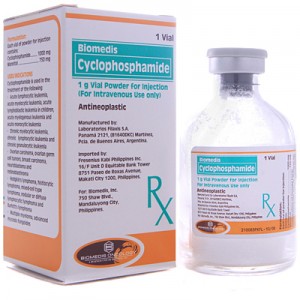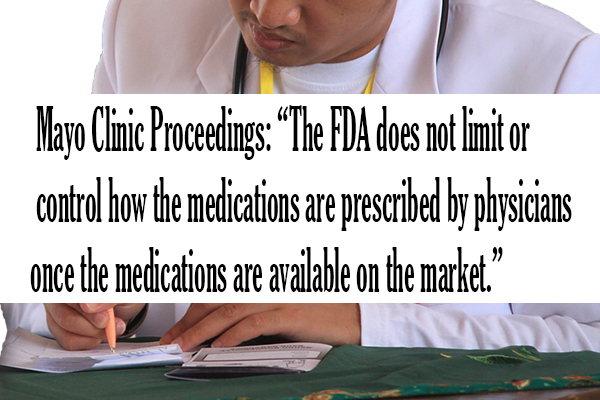
Autoimmune diseases are reaching levels of epidemic proportions, and one of the least understood is lupus, of which cases have nearly tripled in the past four decades. We still have a lot to learn about lupus treatment options, which is what makes pop star Selena Gomez’s recent announcement so important (she has the undivided attention of millions of young fans).
Gomez revealed that she underwent chemotherapy treatment not for cancer but for lupus – most people don’t realize it, but chemotherapy is not only used for cancer. Expensive chemo drugs are also being prescribed for a row of illnesses, especially autoimmune diseases.
“That’s what my break was really about,” she told Billboard Magazine. “I could’ve had a stroke.” Gomez said she underwent the treatment but did not specify whether she took oral chemo drugs or IV chemotherapy.
“Chemo kills cells that are rapidly dividing. What you are hoping is you hit the right dose of chemo to kill the problem and spare the cells you need to live,” told Dr. Joan T. Merrill, medical director of the Lupus Foundation of America, to the Daily News.

Cyclophosphamide
Dr. Merill said the list of illnesses that chemo can be used for are: lupus, rheumatoid arthritis, polymyositis, vasculitis, Crohn’s disease, psoriatic arthritis, and sceleroderma.
One of the first known instances of chemotherapy being used for lupus is a 1971 controlled trial that used oral cyclophosphamide (chemo drug) to treat the disease. It appears that the chemo treatment is gaining more popularity now beside other mainstream treatment options such as corticosteroids, antimalarials and more.
While some see this as hope for treating “uncurable” diseases, is this really just an excuse to stop looking for safer treatments while simultaneously finding a new market for these expensive drugs?
And are they ignoring the true history (and shocking ineffectiveness) of chemotherapy related treatments, putting their patients at risk?
Besides cancer, these are the diseases chemo is used for:
Cyclophosphamide (Cytoxan®) and mycophenolate mofetil (CellCept®) chemotherapy drugs work by reducing the activity of the immune system, and are used to treat cancer or a very severe case of lupus. Chemo and other treatment options for lupus are aimed at reducing inflammation, suppressing the immune system, and lessening symptoms such as joint pain.
But cyclophosphamide’s side effects include cancer and heart damage (fewer than 1 in 100 people, exact number unknown). People with lupus more often die from heart disease. In total more than 10 in every 100 people will experience side effects ranging from fatigue and nausea to infections, breathlessness, and even hair loss as well as a possible loss of fertility. It can also cause birth defects in the next generation.
The American College of Rheumatology explained that cyclophosphamide is also used for severe cases of refractory rheumatoid arthritis, as well as myositis, scleroderma, or vasculitis. But the side effects remain troublesome (which is why many people are using natural protocols including special turmeric preparations instead).
Drugs’ “off-label use” is legal!
“If a drug has been approved for one use, physicians may elect to use this same drug for other problems if they believe it may be helpful,” according to ChemoCare, a chemotherapy informational site funded by The Scott Hamilton Cares Initiative.
Cytoxan® was never approved for the treatment of lupus, arthritis, or vasculitis; and CellCept® was never approved for lupus. How is this possible?
According to the Mayo Clinic Proceedings, “The FDA does not limit or control how the medications are prescribed by physicians once the medications are available on the market,” therefore any commercially approved drug can be used to treat anything as long as the doctor decided to do so. Believe it or not this is a fairly common practice as about 21% of prescription were an off-label use in 2006; in an intensive care unit the number was over 36%.

Chemotherapy Drugs Rake in the Big Bucks
Is there a reason for doctors to prescribe chemotherapy over other treatment options? As you may have guessed, money could be playing a major role.
Chemotherapy can be administered in IV form or through oral drugs. Dr. Peter Ubel wrote that oncologists do “buy and bill” expensive treatments and purchase intravenous chemotherapy from pharmacies as outpatient chemotherapy treatment is becoming more popular. Another oncologist wrote that cyclophosphamide can and is being bought by doctors wholesale.
We have also seen oncologists greatly misuse their ability to get and administer chemotherapy drugs. Are other doctors any different?
In the past, doctors such as Dr. Farid Fata were found guilty of prescribing chemotherapy drugs to patients who did not need them. Why would doctors do that? – Kickbacks. Chemotherapy drugs are the most profitable type of drug on the market, because doctors who prescribe them, receive a direct monetary cut.
NBC News reported back in 2006 that doctors buy chemotherapy drugs wholesale and make profit from selling the drugs. The potential for conflict of interest is evident. The New York Times reported that oncologists are tempted to keep prescribing chemotherapy drugs to patients even when the drugs have little to no chance of working. But as everyone knows, the side effects can be far worse than the disease itself.
Are other types of doctors any different? Could this be the incentive behind prescribing chemotherapy drugs for other diseases?
“[Doctors] might have a preference to give you the [drug] that they’re going to make the most money from,” said Arthur Caplan with the University of Pennsylvania Center of Bioethics to NBC News, and it’s just one more reason why educating ourselves and taking control of our own personal health is more important now than ever before.
As is the case with cancer, chemotherapy is not considered to be a cure; mainstream medicine generally considers lupus to be “uncurable.” Also like cancer, it is quite common among younger people, with women age 15-40 among those with the highest risks for the disease.
Natural Treatments for Lupus
As for natural treatment alternatives, Dr. Andrew Weil recommends working with professionals specializing in Ayurvedic and traditional Chinese medicine as both systems are adept at helping autoimmune disease sufferers, he says. Dr. Josh Axe recommends cutting out gluten, trans fats, processed sugars and other key trigger foods that can cause flare-ups, along with a holistic approach that includes supplements like Vitamin D, MSM, and essential oils such as frankincense and helichrysum.
At any rate, it’s always important to know the risks and benefits of the therapies you choose, especially when it comes to chemotherapy. Regardless of what disease it is used for, the side effects are the same – and they’re not getting any less dangerous, that’s for sure.
This article is for informational purposes only. Consult a licensed, preferably holistic doctor for more information and before making any major lifestyle or health-related changes.
***
Want to learn more about the most effective ways to prevent and beat cancer? Watch the Truth About Cancer, a 9-part documentary NOW.
Thanks for installing the Bottom of every post plugin by Corey Salzano. Contact me if you need custom WordPress plugins or website design.





